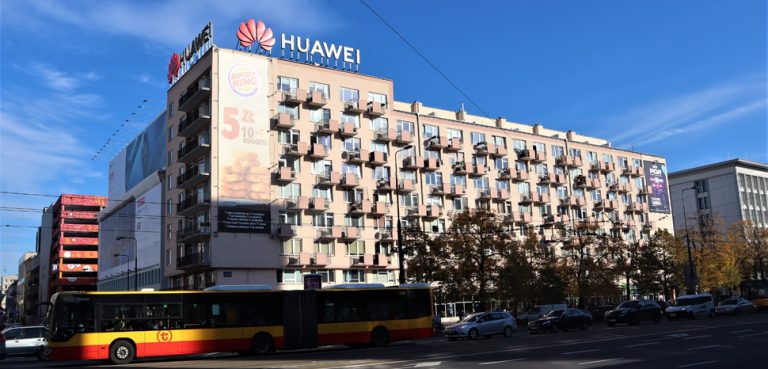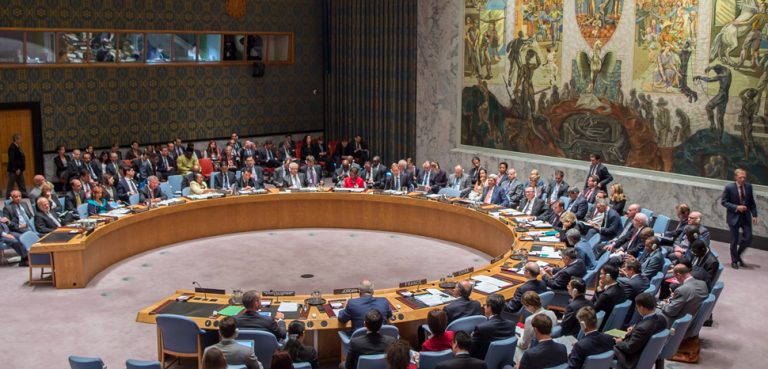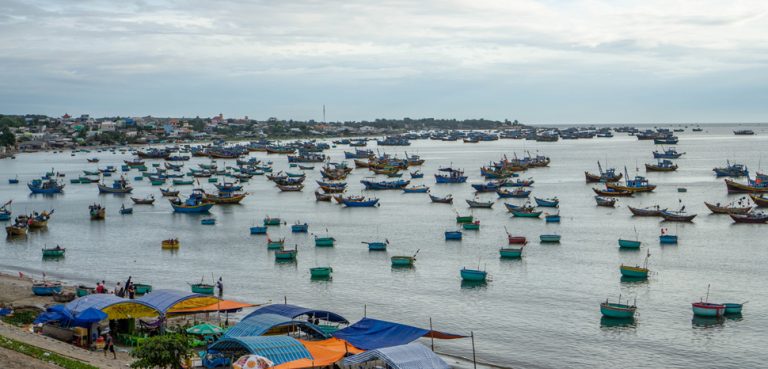On 13 March 2020, the Bulgarian Parliament declared with full unanimity a state of national emergency, five days after it was officially confirmed that the COVID-19 pandemic had reached the country. The lockdown measures, as in other parts of Europe, have included the closure of schools, universities, and non-essential businesses; a ban on mass gatherings for the purpose of which city parks were temporarily designated as off-limit areas; as well as strict restrictions on travel between cities. The timing of the government’s decision has on a whole garnered societal approval, as the country is believed to have drawn valuable lessons from the experiences of other states such as Italy that saw their health systems overwhelmed as result of the exponential rise in coronavirus cases in late February and early March. Military doctor and Major General Ventsislav Mutafchiyski, who was appointed as chairman of the National Operational Headquarters on 24 February, with the purpose of setting the tone for and coordinating the country’s response to the pandemic, was propelled into the spotlight and saw his approval rating start to exceed that of the established political figures.
The gravitation toward a ‘low risk’ approach (attributable to the prevailing uncertainties associated with the epidemiological characteristics of the novel coronavirus and the nature of the country’s health infrastructure) notwithstanding, Bulgaria’s handling of this health crisis seems remarkably in line with a number of features that typify Bulgarian nationalism as well as the ways in which national identity is expressed in the country.
One crucial staple of Bulgarian nationalism is the tendency towards defensiveness coupled with a wary pessimism, which is due to the public’s perception that the country has on many occasions been on the “wrong side of history.” The multitude of national catastrophes, a consequence of Bulgaria’s forceful incorporation into foreign entities such as the Ottoman Empire, the constraints imposed by its membership in the Eastern Bloc, as well as the detrimental territorial changes brought about by its involvement in major armed conflicts of the 20th century, inevitably inform discourses on identity and national character in Bulgaria. While other Balkan countries have also had to contend with constant struggles for national recognition, historian Maria Todorova describes Bulgaria as being characterized by a ‘weak nationalism,’ which is due to organized national movements developing somewhat later than in the case of Serbia and Romania, as well as the Bulgarians’ lack of a credible messianic claim, i.e. not inspiring intellectual fashions such as the Philhellenism in the case of the Greeks or being able to claim to be torch-carriers from the Roman Empire as in the case of Romania. In line with the predilection to shun messianic affirmation, Bulgaria appears to have refrained from striving for any form of national exceptionalism in its approach to tackling the pandemic. The country has actually been quite careful in charting a middle course between the very tight lockdown in Serbia that saw a 12-hour curfew imposed by the police for younger people and the more laissez-faire attitude (with limited emphasis on official restrictions) seen as a hallmark of the Swedish recipe for dealing with the crisis. It is my impression, based on discussions in the media, that the Bulgarians opposed to what they view as excessive restrictions have tended to draw attention to the perceived successes of other countries such as Belarus with regard to finding the balance between citizens’ health and economic resilience in the long-term rather than attempting to sketch out alternative scenarios with specifically Bulgarian underpinnings to them.
According to Pepka Boyadzhieva, Krastina Petkova, and Galin Gornev who undertook a sociological survey of more than 700 Bulgarians in different parts of the country between March and May 2010, Bulgarian national identity is from an emotional standpoint anchored between pride and shame, with the former exceeding the latter. Also, the comparisons with other nations seem to create an emotional discomfort for Bulgarians, who have a tendency to underestimate rather than overestimate the position of their country when it comes to indicators such as the Human Development Index and economic development relative to nation-states that are objectively less affluent. The first part of this sentiment manifests itself in the inclination of many Bulgarians to frequently check where they stand in relation to the other European countries with regard to the progress made against COVID-19 as well as the statements of the Prime Minister Boyko Borisov, who has on numerous occasions emphasized that Bulgaria can be proud of its citizens’ self-discipline, which helped ensure a low mortality rate during the first two months of the pandemic in comparison to that of many other European countries. However, in accordance with the latter aspect (the pessimistic evaluations of self-worth), Bulgaria has continued to look for foreign blueprints to follow. For example, Bulgaria began a gradual phasing out of restrictions in the beginning of May, but Minister of Health Kiril Ananiev explicitly stated that Bulgaria will wait for about two weeks and follow the development of the situation in countries such as Germany with regard to the opening up of the kindergartens before it is decided whether to proceed with a similar course of action. This is of course reasonable given that Germany has been rather successful handling the pandemic so far, especially in comparison to the other Western European countries, and the Germans’ historical influence on the patterns of Europeanization in Bulgaria. However, it could also be another testament to the aversion of Bulgarian politicians with regard to trailblazing and setting trends in the realm of policy.
Another facet of Bulgarian nationalism is what journalist Konstantin Galabov calls “a love of freedom,” which has also played a part in shaping the attitudes toward minority groups in the country. While strongly attached to their country, Bulgarians are not particularly receptive to far-right ideologies that could encourage the persecution of minorities. The assimilationist policies against ethnic Turks in the 1980s, regarded as one of the few blots in the country’s record of peaceful inter-ethnic relations, did not enjoy significant popular support. Thus, it is not surprising that there has been a paucity of incidents of xenophobic nature in Bulgaria during the pandemic. In fact, even though Bulgaria collects official statistics on the ethnic demographics in the country, Mutafchiyski, the face of the coronavirus response team, has been opposed to the idea of disclosing data pertaining to the ethnic breakdown of the infected people in order not to foster divisiveness within the wider society. While discrimination against minority groups such as Romani people is certainly a feature of the political and social landscape, the crisis has probably reinforced the notion that pointing fingers at ethnic outsiders is not a constructive endeavor. In a sense, this spirit of tolerance has been applied to expatriate Bulgarians as well – the prime minister has in a number of instances reiterated that Bulgaria is not in a position from a moral and legal standpoint to close its borders to the Bulgarians who want to return from abroad for medical or other reasons, the health risks notwithstanding. However, this permissiveness has also invited criticism stemming from instances in which the virus has spread due to such travelers failing to observe quarantine rules.
In relation to the importance attached to freedom by Bulgarians, as mentioned above, the government has also attempted to avoid the impression that it is unilaterally imposing top-down solutions without consulting ordinary Bulgarians. For instance, the Bulgarian regulations on the wearing of masks have been quite inconsistent – in late March they were initially made compulsory with the risk of a fine for non-compliance, but in less than 24 hours this requirement was waived, with the lack of societal consensus (in addition to concerns about their scarcity) being cited as a factor for the policy reversal by the health minister. In mid-April, masks were once again made obligatory, but on 1 May the policy underwent another change, with masks starting to be mandated only in enclosed spaces. Also, Bulgaria (along with Georgia) was the only European country in which Orthodox churches remained open for the celebration of Easter, which was praised by many priests, even though the majority of devotees preferred to observe the Christian tradition from their homes.
It remains to be seen whether Bulgaria will continue to follow a predictable course when it comes to the long marathon against coronavirus pandemic. The indications are that the national emergency (which is supposed to end on 13 May) will again be extended if the number of newly infected people reaches 100 or close to that number on any given day. Taking into account that certain establishments such as banks and insurance companies remained almost fully operational even during the height of the lockdown, there are reasons to suggest that the transition to the ‘new normality’ may be smoother than in the case of the countries that took a more hardline approach. It is probably too early to make informed comparisons regarding the effectiveness of the approaches followed by the European countries in their attempts to flatten the curve, but what is clear at this stage is that the unprecedented health crisis is unlikely to usher in major paradigm shifts when it comes to conceptions of identity in Bulgaria.
The views expressed in this article are those of the authors alone and do not necessarily reflect those of Geopoliticalmonitor.com or any institutions with which the authors are associated.




